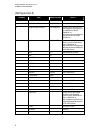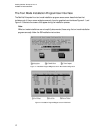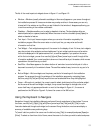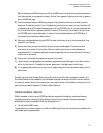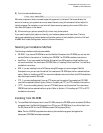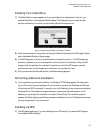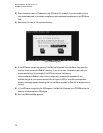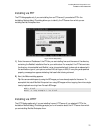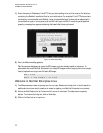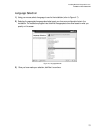
Installing Red Hat* Enterprise Linux 4*
Intel® Server Board S5000PAL
16
Note: Refer to Appendix A “Additional Boot Options” for additional boot options not covered in this
section.
1) To perform a text mode installation, at the installation boot prompt, type:
linux text
2) ISO images have an md5sum embedded in them. To test the checksum integrity of an ISO image, at
the installation boot prompt, type:
linux mediacheck
3) The installation program prompts you to insert a CD or select an ISO image to test, and select OK to
perform the checksum operation. This checksum operation can be performed on any Red Hat
Enterprise Linux CD and does not have to be performed in a specific order (for example, CD #1 does
not have to be the first CD you verify). It is strongly recommended to perform this operation on any
Red Hat Enterprise Linux CD that was created from downloaded ISO images. This command works
with the CD, DVD, hard drive ISO, and NFS ISO installation methods.
4) Also in the images/ directory is the boot.iso file. This file is an ISO image than can be used to boot
the installation program. To use the boot.iso, your computer must be able to boot from its CD-ROM
drive, and its BIOS settings must be configured to do so. You must then burn the boot.iso file onto a
recordable/rewriteable CD-ROM.
5) If you need to perform the installation in serial mode, type the following command:
linux console=<device>
6) For text mode installations, use:
linux text console=<device>
Note: In the above command, <device> should be the device you are using (such as ttyS0 or ttyS1).
For example, linux text console=ttyS0.
7) Text mode installations using a serial terminal work best when the terminal supports UTF-8. Under
UNIX and Linux, Kermit supports UTF-8. For Windows, Kermit ’95 works well. Non-UTF-8 capable
terminals works as long as only English is used during the installation process. An enhanced serial
display can be used by passing the utf8 command as a boot-time option to the installation program.
For example:
linux console=ttyS0 utf8
Kernel Options
1) Options can also be passed to the kernel. For example, to instruct the kernel to use all the RAM in a
system with 128 MB of RAM, at the installation boot prompt, enter:
linux mem=128M



